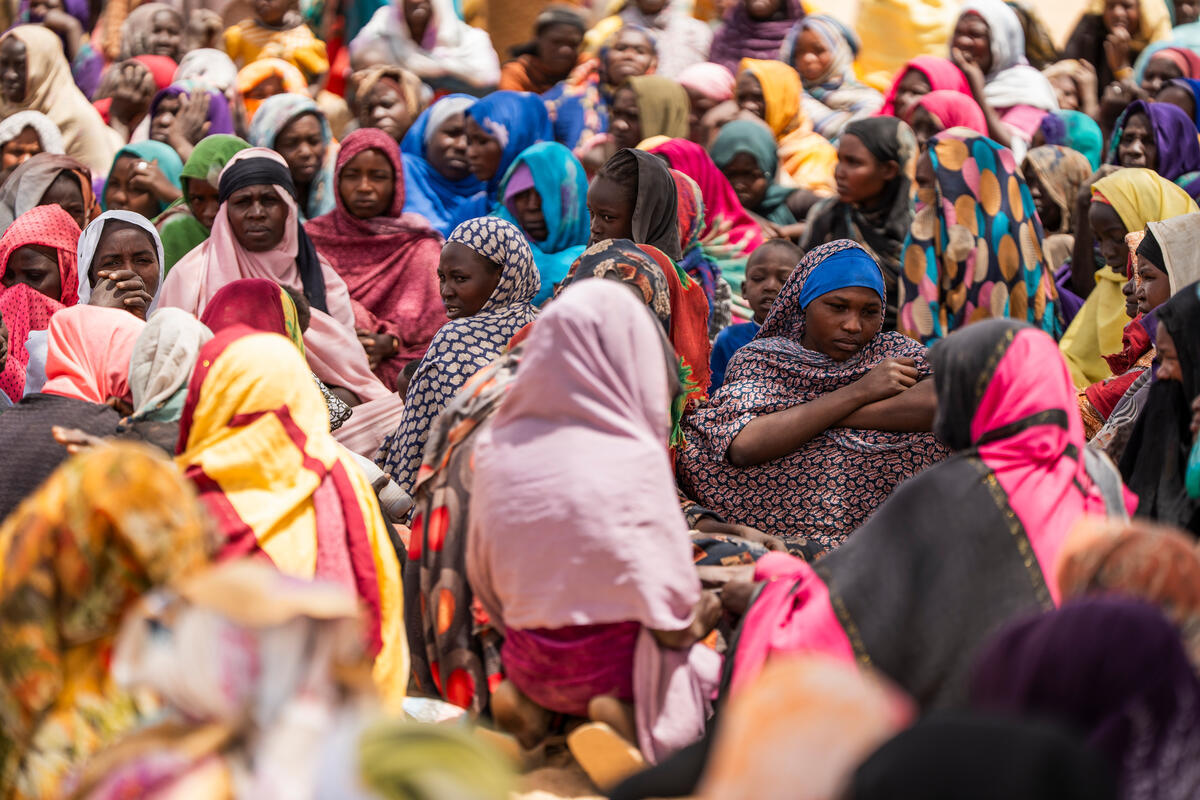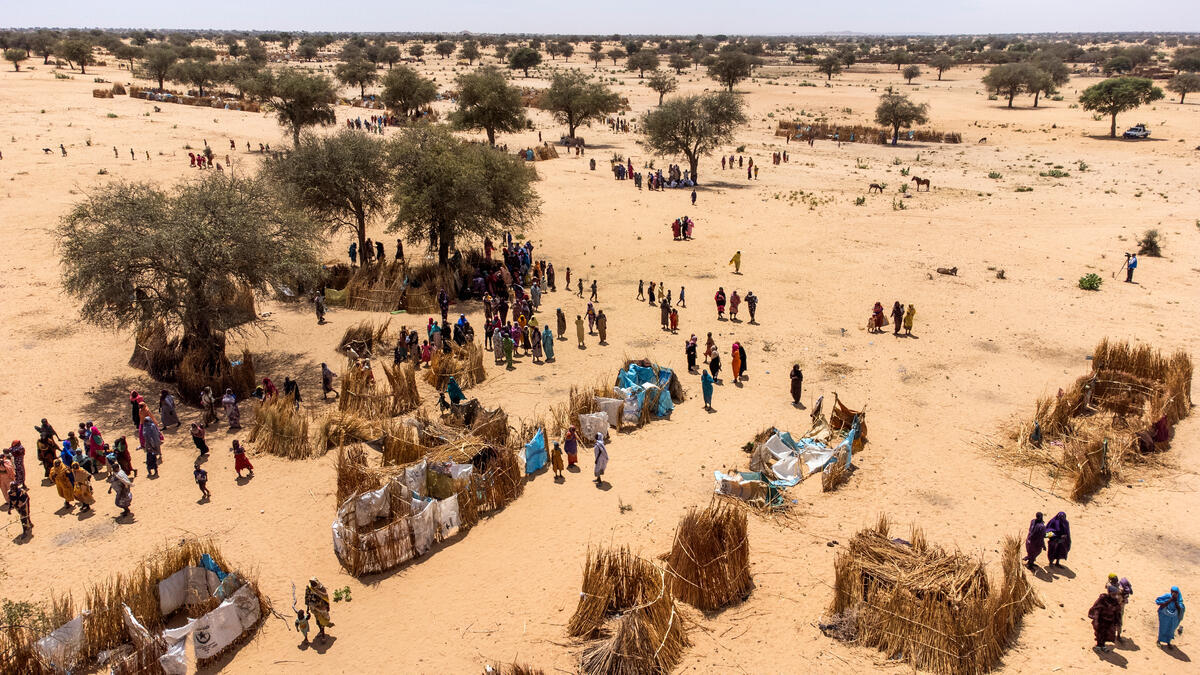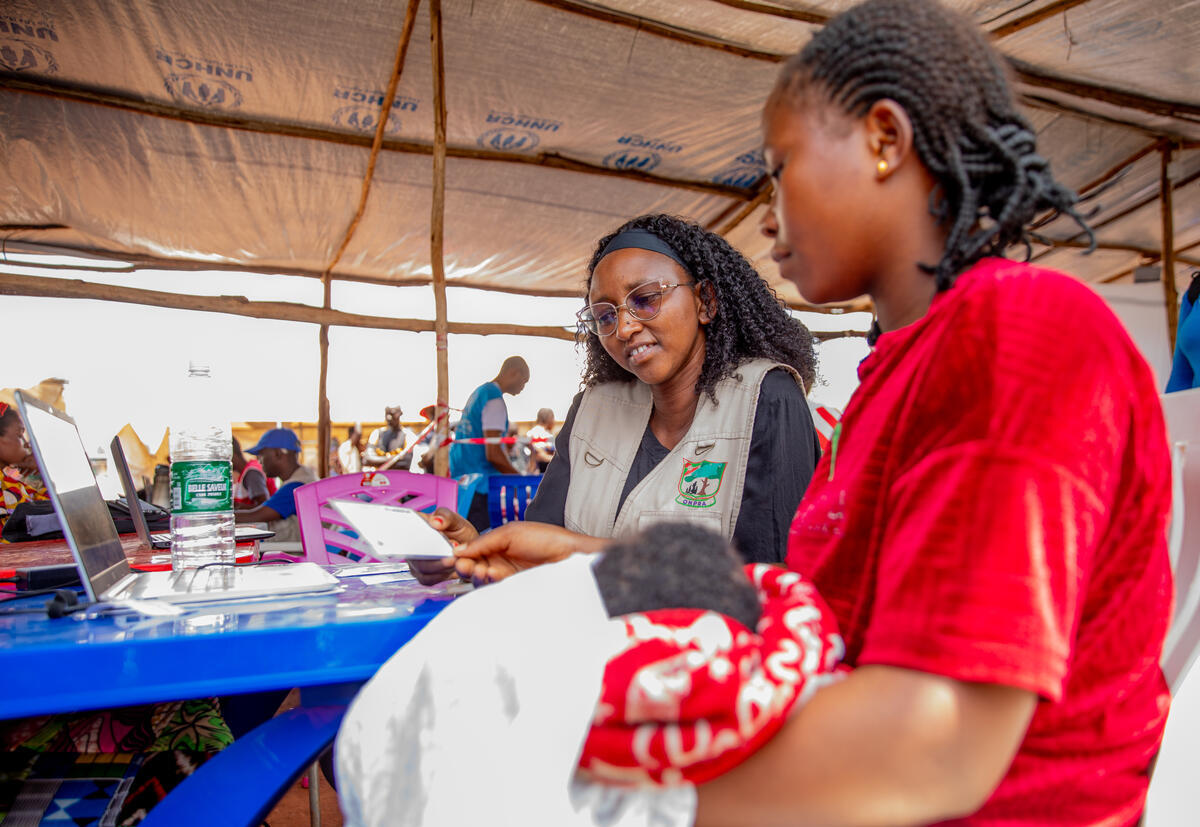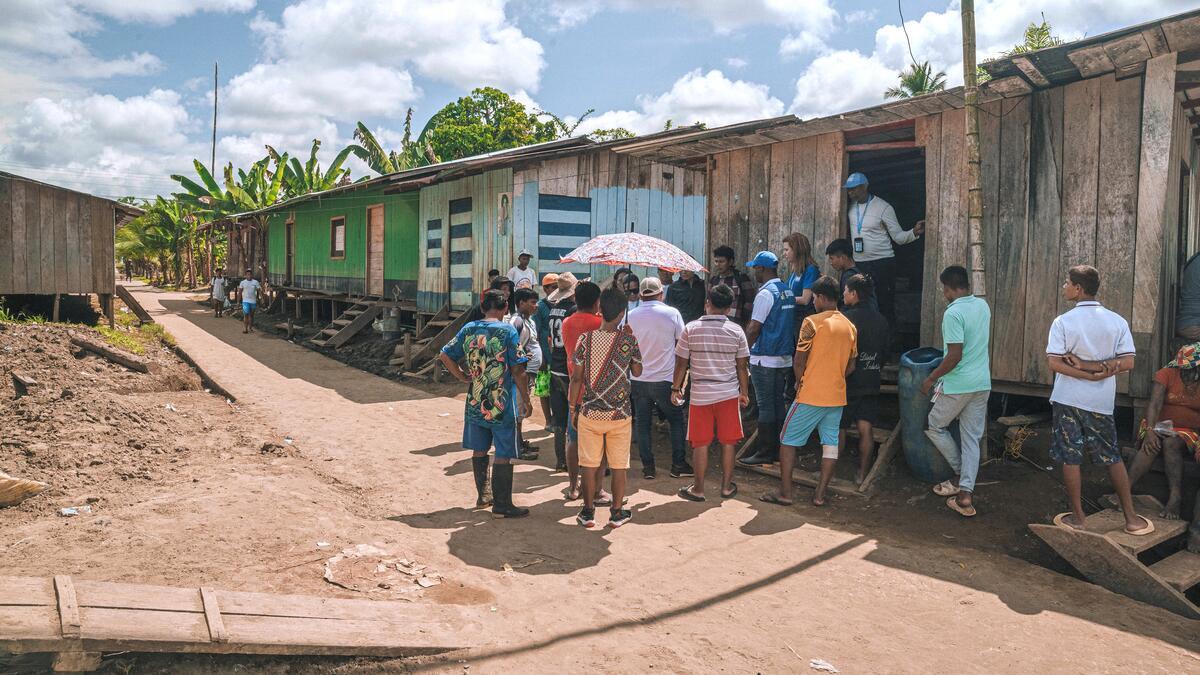UNHCR's operations chief praises Brazil’s refugee protection and integration model
UNHCR's operations chief praises Brazil’s refugee protection and integration model
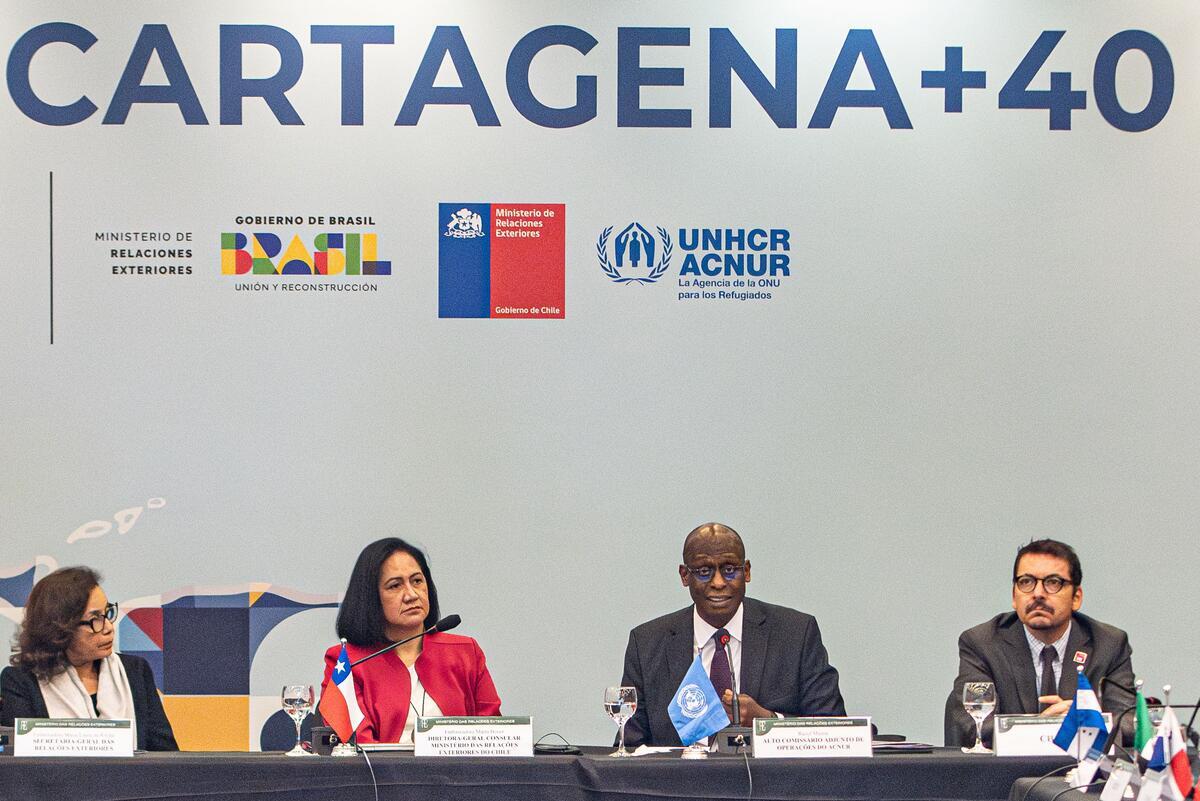
UNHCR's Assistant High Commissioner for Operations, Raouf Mazou (second from right), attends a Cartagena+40 Process meeting in Brasilia.
GENEVA – Raouf Mazou, Assistant High Commissioner for Operations at UNHCR, the UN Refugee Agency, has praised Brazil’s exceptional solidarity with refugees and its inclusive response, which focuses on their protection and on finding solutions for them.
“Brazil's commitment to inclusive refugee policies shows that documentation, asylum and other forms of protection, combined with access to jobs, livelihoods, education and health, are the best way to arrive at solutions,” said Mazou, wrapping up a weeklong visit to the country.
In São Paulo and Manaus, Mazou visited innovative projects empowering refugees from different nationalities through employment, helping them integrate into local communities. He also met with national authorities in the capital, Brasilia, and opened the second Cartagena+40 Process consultation, focused on inclusion and integration.
The Cartagena+40 process was initiated to commemorate the 40th anniversary of the 1984 Cartagena Declaration on Refugees, which has championed protection responses and solutions for refugees and displaced people in the region, including through incorporation in national legislation of a regional, expanded refugee definition.
The process has improved regional cooperation among Latin American and Caribbean countries and brought greater solidarity and responsibility sharing for displaced populations. A new plan for the next decade, 2024-2034, is expected to be adopted at the end of this year.
Speaking at the Cartagena+40 event, Mazou emphasized that a comprehensive approach involving governments, the private sector, civil society, multilateral development banks, municipalities and organizations led by refugees and other displaced people can break the cycle of displacement in the Americas. “When forcibly displaced people are included and integrated into their host communities, they rebuild their lives and contribute to the societies and economies that welcome them, while avoiding dangerous onward movements,” he said.
Mazou's visit coincided with heavy rains and floods in the south of Brazil, which have left over a hundred people dead and devastated huge areas of the state of Rio Grande do Sul. More than 2 million people have been affected, according to official figures, including some 43,000 refugees and others in need of international protection, mainly Venezuelans and Haitians.
UNHCR is helping the authorities and partners with the humanitarian response, including the delivery of relief items, technical assistance on shelter management and provision of reliable information to refugees and migrants.
“UNHCR stands in solidarity with refugees, migrants and Brazilians who have lost their homes and belongings, and with families who lost loved ones in this tragedy,” said Mazou. “Disasters caused by extreme weather events exacerbated by climate change are generating displacement, and disproportionately impact the most vulnerable, including refugees and indigenous populations.”
Mazou encouraged Brazil to maintain its support for refugees and others in need of international protection, through good practices such as granting humanitarian visas and applying the Cartagena Declaration’s regional refugee definition, which is part of national refugee laws.
Humanitarian visas have provided safe and legal pathways for asylum-seekers to reach Brazil, while the application of the regional refugee definition recommended by the Cartagena Declaration has allowed the country to streamline the analysis of asylum claims. Almost 130,000 individuals from Afghanistan, Burkina Faso, Iraq, Mali, Syria and Venezuela have been recognized as refugees under this simplified procedure.
There are currently over 730,000 people in need of international protection in Brazil, including 144,000 recognized refugees, mostly Venezuelans (132,645), followed by 19,633 Cubans, 4,056 Syrians and 1,165 Afghans. In addition, there are over 68,000 pending asylum cases from individuals from 155 different nationalities.
For more information, please contact:
- In Geneva: William Spindler, spindler@unhcr.org, +41 79 549 59 98
- In Panama: Luiz Fernando Godinho, godinho@unhcr.org, +507 6356 0074
- In Brasilia: Miguel Pachioni, pachioni@unhcr.org, +55 11 98875 3256

